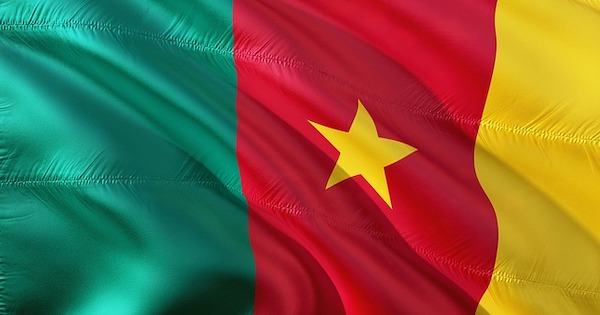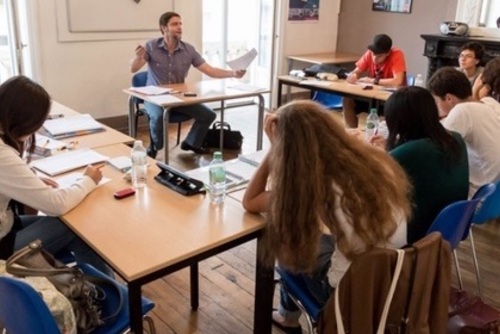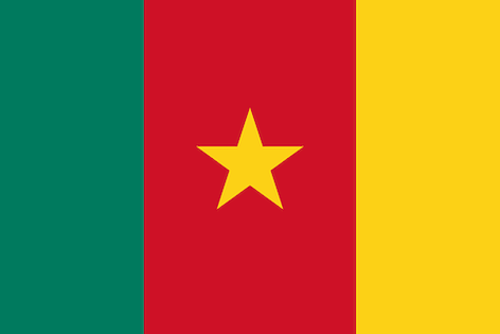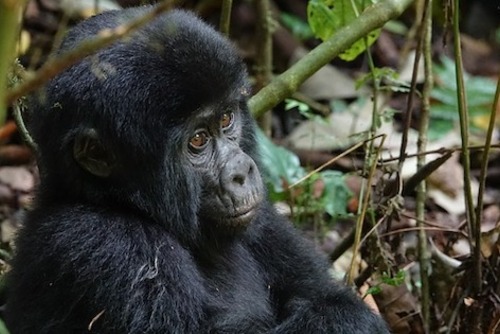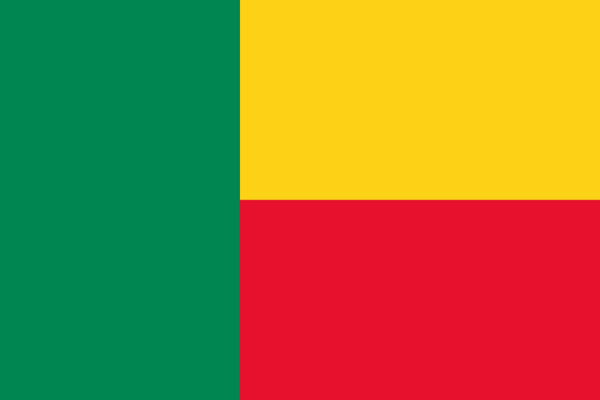How to Volunteer in Cameroon
Cameroon has a population of around 20 million people and approximately 40% of people live in poverty or inadequate conditions. Life expectancy is very low - the average person only lives to 52 years of age. International charities and local NGO's have been working on the ground for many years with long-term aims of improving facilities and helping local people out of poverty.
In Cameroon you can volunteer in places like French-speaking Douala or English-speaking Buea alongside dedicated locals at community based projects that serve some of the most vulnerable populations in the region. From supporting Human Rights to helping staff at one of our child-care placements, discover a range of projects that are suitable for many volunteer profiles. Learn about international development from the local context, travel the country, and gain invaluable life experience while you do it.
Local grass-roots organizations and social groups recognize the potential for sustainable, inclusive development in this culturally rich and increasingly fast paced country, and they need your support. You can apply help children, communities and exotic wildlife. Most projects are located in Douala, Buea, or Lower Bokova and people in Cameroon are bilingual, English and French are spoken which makes the whole experience of working here easier.
There is also the option to learn French without volunteering, through a French language study abroad program. View our rewarding free volunteer programs in Cameroon and apply to make a difference. Search volunteer projects in Cameroon and apply today.
Major Issues facing Cameroon
Health issues are of significant concern in Cameroon. In 2007 it was reported that 5.1% of the population had contracted AIDS. General health of the population is poor, with prevalent risks being waterborne diseases, Hepatitis A and E, Typhoid, Malaria and Yellow Fever, among others. Health Care facilities are often not sanitized sufficiently. Mortality rates are high accounting for general low life expectancy and high infant mortality.
41% of the population in Cameroon is under the age of 14; many of these children are used to help fuel Cameroon’s export economy through crude oil and other petroleum products, timber, cocoa, aluminum, coffee and cotton. Infrastructure is of particular concern in the realm of education as the increasing number of students in schools exceeds the quality of the buildings. Environmental issues include deforestation, overgrazing, desertification, poaching and over fishing.
Location of Projects
Some projects are located in the capital Yaounde and Douala, which is francophone, and is also Cameroon’s largest city. Douala is also a major trading port located on the coast, protected in the heart of a large bay. There are also placements in more rural areas of the country like Kumbo in the East of the country. You will usually be required to work around 4-6 hours per day 5 days per week and get lots of time off and excursions can be arranged in country.
Shared accommodation is usually provided on gap year programs with other participants but there is also the option to pay extra for a private room. Cameroon might be a developing country but don't worry there is electricity, Western style bathrooms and also internet available in the cities. Sometimes home stays are available where you will live and eat with a local family. You might also like to view all of our volunteer projects in Africa.
Educational & Teaching Programs in Cameroon
Significant assistance is needed throughout the country especially for communities in rural areas. A lot of local NGO's work to empower people especially children helping them achieve a brighter future with better education and training which helps improve job prospects. There are various literacy programs operational in grassroots communities which provide children and adults the chance to attend for free and enhance their learning. There are educational projects in schools where you can work direct with children leading lessons and training local teachers.
Some charities directly aim to help women in Cameroon with empowerment programs help disadvantaged women progress in life and recruit international staff to help. You can also sign up to teach in schools throughout Cameroon, people are needed to help lead and assist lots of subjects like English, sports, arts, music and crafts. Schools in Cameroon are often underfunded and staff not fully qualified which can hinder development. You will need to be very patient and creative, classrooms in this country are basic and conditions challenging.
Medical & Healthcare Work in Cameroon
There are lots of projects where you can work in outreach teams helping improve living conditions, working to prevent the spread of HIV & AIDS and looking after poor people. There are also programs with children who are handicapped, orphaned, or have been exploited or abandoned. There are lots of educational and awareness campaigns which aim to prevent more people contracting the disease and also medical and healthcare programs working to help people.
Other healthcare initiatives help people suffering from physical disabilities and mental illness. All experience levels are welcomed to apply, so whether you are training and looking for experience, or a qualified professional or just wanting to give service there will be a placement for you. Tasks can involve observing and assisting local doctors and nurses. If you have any skills like midwifery, dentistry, physiotherapy are all in big demand.
Wildlife & Conservation Projects in Cameroon
Working to improve conservation in Cameroon is a complex social, economic and political issue. In addition to providing a habitat for wildlife, forests are important ecosystems and provide many resources for people. Due to destruction and deforestation local people are forced to move elsewhere for food, shelter, and jobs, leading to greater poverty, social instability and issues with wildlife not having anywhere to go.
Spending time working to improve the lives of exotic wildlife and primates will provide you with an amazing experience, these creatures face problems like being orphaned due to poaching, or they become the victim of the illegal bushmeat and pet trades. You can only help apes and primates in limited locations around the world - this is a magical experience.
Some tasks can include working as a general assistant at a wildlife centre or behind the scenes creating conservation awareness material with the aim of getting local people involved in efforts to save exotic wildlife in the country.
Community Development Projects
Some programs include field research where you will go to villages and urban towns that have been identified in need of assistance. Examples of activities may include:
- Helping design an original research project
- Traveling to the different villages and towns in the region surrounding Buea
- Conducting interviews with locals
- Helping to complete nutrition assessments
- Report writing
- Website development
Working Week
The hours spent volunteering are flexible. Volunteers may be requested during evenings and weekends. You can take long weekends to travel and explore in Cameroon, just let your supervisor know in advance. Projects generally run year round, but volunteer hours may be reduced during major holidays.
How to Apply
Most organisations will require you to be aged 18 years+ and be in good health. There are advanced placements for skilled professionals but most opportunities are open to everyone even if you lack previous experience.
You can apply in advance and join most weeks of the year. Some organisations require you to stay for at least 2 weeks and offer structured packages which include pre-departure information, placements, 24hr emergency support, food, accommodation and transfers.
You will usually need to pay for flights to Cameroon. If you apply direct with a local NGO you might be able to find free and low cost placements (usually you will just need to pay a donation or cover your food / board).
FAQ
What part of the Cameroon will I be living in?
There are programs all over the country but you will usually be living in a neighbourhood or “cartier” called Bonamoussadi if you join a project in Douala. It is primarily Cameroonians who live in this cartier. Thus, it provides an excellent opportunity to integrate into the local way of life. The cartier is also home to many of our partners serving Douala’s poorest people. Thus, it is ideally situated close to where you will volunteer
Accommodation
Usually onsite accommodation or a homestay with local host, breakfast and dinner provided.
How are host families chosen?
We work with host families who we know and trust. These are contacts that have been built over time with whom we have an established relationship. Families are committed to providing a welcoming home, integrating you into the local way of life, and looking out for your safety.
Can you tell me more about host families and accommodation?
Families are middle class. Many are early career professionals and have young children. You will have a room to yourself or shared with one other person. If shared, you will have your own bed. Internet cafes and markets are within walking distance.
How far is it from my house to where I will volunteer?
Depending on who you live with and where you volunteer, you can expect to have a five to fifteen minute walk, or up to fifteen minutes in local transport.
In-Country Support
The person responsible for looking after your needs during your placement will be an exchange manager in Cameroon. Your exchange manager is the in-country representative who manages aspects of your placement overseas including lodging, language lessons, organization placement, and country specific advice. You will always have the full support of your host organization and you will be accompanied by a project staff member to the project sites. Transportation during data collection will be provided by your host organization. Your on-site schedule is flexible, and will be decided on arrival.
How will I manage if I don’t speak French?
You will learn. In a very short amount of time you will learn the basics for getting around the city, buying your own food and taking your transport. Your Exchange Manager will assist you with this, and you will find you will build your confidence in speaking French in a short amount of time.
I have only one month and basic French. I would like to do volunteer activities that use my university education rather than basic activities like caring for children. Is this possible?
It will be unrealistic to meet this request. It is not that we are not willing to accommodate. Rather, if you have one month do volunteer activities which require administration, reading, writing, and speaking in French, you will get frustrated. Think, for example, if a foreigner was to come into your workplace for one month and did not speak English. No matter how skilled this person is, he or she will not be able to share these skills in a language that you and your co-workers understand.
If you are starting with basic French and have only one month, we would recommend volunteering with children, as an intermediate level of French (or having the time to learn more French) is not needed. Yet, you will have the opportunity to improve your French in this setting. Alternatively, if the work experience is a greater priority for you than learning French, we would recommend volunteering in a region where English is the working language.

